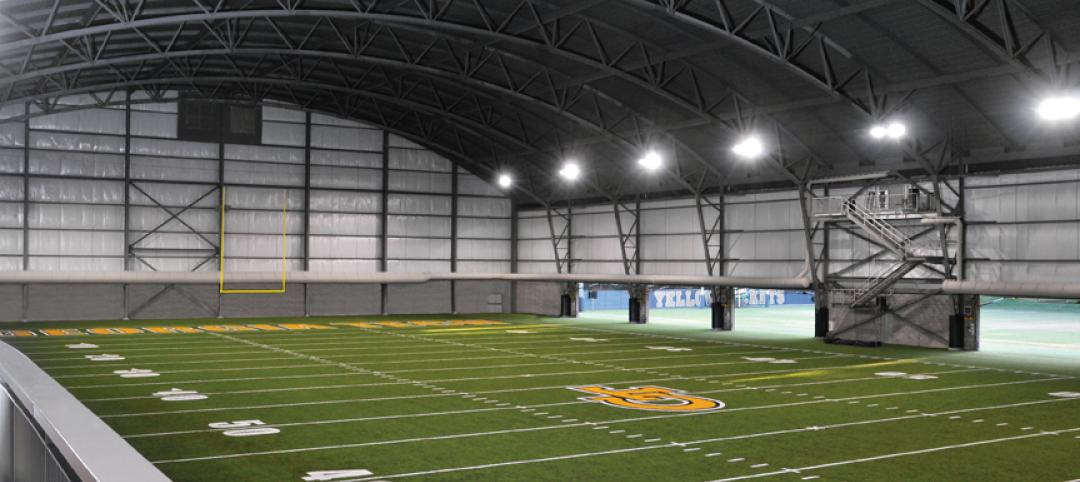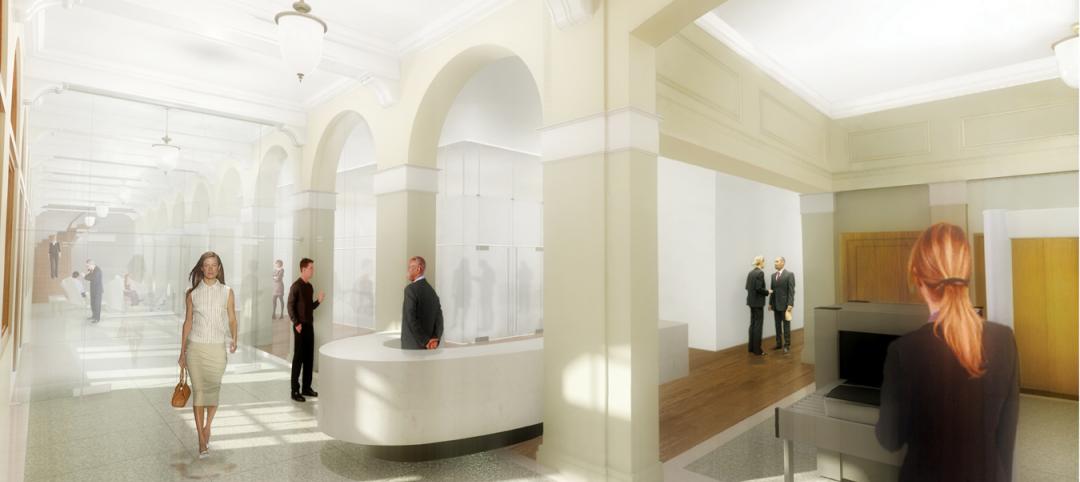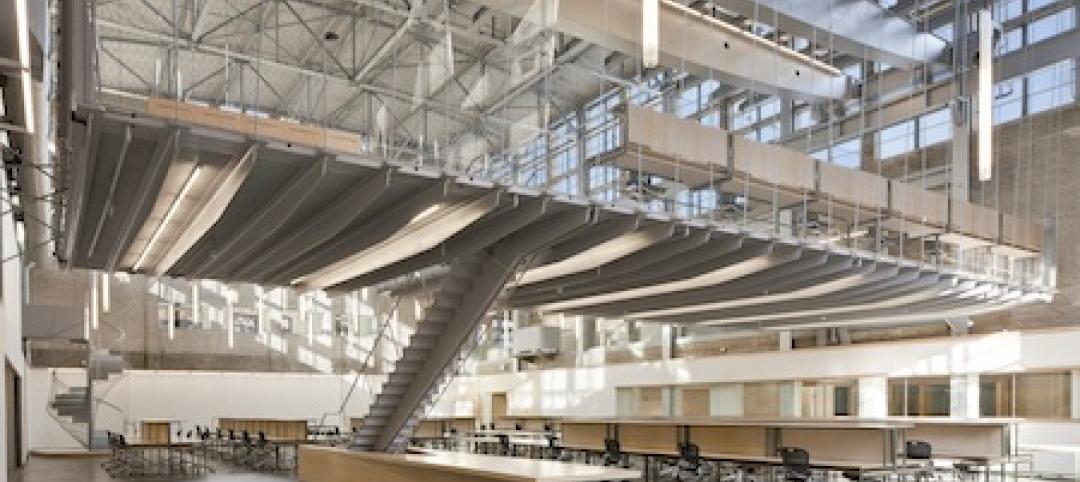FLUSHING, N.Y. – The United States Tennis Association has announced its plans for a sweeping transformation of the USTA Billie Jean King National Tennis Center that will include the construction of two new stadiums, as well as a retractable roof over Arthur Ashe Stadium. The transformation will be implemented in three phases to begin at the conclusion of the 2013 US Open, with the goal of overall completion by the 2018 US Open. The completion of the retractable roof for Arthur Ashe Stadium is scheduled for August 2017.
The cost for this historic transformation is estimated at $550 million, including the cost of the retractable roof, estimated to cost in excess of $100 million. As it has done with improvements to the National Tennis Center in the past, the USTAwill self-finance the entire cost of this transformation through a combination of bonds and USTA revenue generation. Since 1994, the USTA has invested more than $500 million in improvements to the site.
“We have been working toward a viable design for a roof on Arthur Ashe Stadium for more than a decade,” said USTAChairman of the Board and President Dave Haggerty. “Through a long and arduous process, we feel that we now have a design that meets the criteria of being architecturally sound, aesthetically pleasing, reasonably affordable, and buildable.”
In addition to the roof on Arthur Ashe Stadium, phase one of construction is scheduled to include the shifting of the existing practice courts and two tournament courts to the north. This will allow the construction of an expanded viewing area for the practice courts and the three new tournament courts. This enhanced fan experience will require the re-building of the current transportation facilities located adjacent to Arthur Ashe Stadium.
The retractable roof is being designed by ROSSETTI, the designer and architect of Arthur Ashe Stadium. The USTA has hired Hunt Construction Group to build the retractable roof structure. Hunt has a long and impressive track record of sports facility construction in New York City, including construction of the Barclays Center and Citifield. As designed, the retractable roof constructed of flexible, translucent PTFE fabric stretched over a steel frame, will be supported by eight steel columns surrounding Arthur Ashe Stadium.
Phase two of the transformation will be anchored by the construction of a new 8,000-seat Grandstand Stadium in the southwest quadrant of the Tennis Center. Simultaneously, field courts 7 through 16 will be moved south so that a larger pedestrian and fan esplanade can be created, better connecting the new Grandstand with Court 17. This southern expansion also allows the USTA to further enhance the fan experience, with a new additional food court, new merchandise locations and sponsor exhibit booths, and other fan amenities across the southern expanse of the Tennis Center.
The project’s final phase will include the construction of a new 15,000-seat Louis Armstrong Stadium. The USTAexpects final design work for Armstrong to be completed in the next 12 to 18 months. The targeted completion date of the stadium, which will be built “roof-ready,” is August 2018. Also during the third phase, the USTA will complete a series of upgrades to the East Entrance, the most trafficked entry point to the US Open.
"We have an aggressive construction agenda for the entire National Tennis Center, with a new Grandstand Court built in time for the 2015 US Open, new retractable roof over Arthur Ashe Stadium by 2017, and a new Louis Armstrong Stadium opening for the 2018 US Open,” said Gordon Smith, USTA Executive Director and Chief Operating Officer. “We recognize there are many known, and certainly many unknown, hurdles we will have to confront to meet this schedule. We are ready for the challenge and hope we can achieve it.”
As a direct result of these collective enhancements to the NTC, the facility will be able to accommodate an extra 10,000 people each day during the US Open, increasing attendance by approximately 1200,000 new visitors, and amounting to a significant economic boost to Queens, New York City and the entire metropolitan region.
The USTA is the national governing body for the sport of tennis in the U.S. and the leader in promoting and developing the growth of tennis at every level -- from local communities to the highest level of the professional game. A not-for-profit organization with more than 785,000 members, it invests 100% of its proceeds in growing the game. It owns and operates the US Open, the highest attended annual sporting event in the world, and launched the Emirates Airline US Open Series linking 10 summer tournaments to the US Open. In addition, it owns approximately 90 Pro Circuit events throughout the U.S, and selects the teams for the Davis Cup, Fed Cup, Olympic and Paralympic Games. The USTA philanthropic entity, USTA Serves, provides grants and scholarships and helps underserved youth and people with disabilities. For more information on the USTA, log on to usta.com, “like” the official Facebook page facebook.com/usta or follow @usta on Twitter.
Related Stories
| Nov 14, 2011
Griffin Electric completes electrical work at Cary Arts Center
The Griffin Electric team was responsible for replacing the previous electrical service on-site with a 1000A, 480/277V service and providing electrical feeds for a new fire pump chiller, six air-handlers and two elevators.
| Nov 14, 2011
303 East 33rd Street building achieves LEED-NC
The 165,000 sf 12-story residential building is the first green development to be LEED certified in the Murray Hill neighborhood of Manhattan.
| Nov 14, 2011
VanSumeren appointed to Traco general manager
VanSumeren will draw on his more than 20 years of experience in manufacturing management and engineering to deliver operational and service excellence and drive profitable growth for Traco.
| Nov 11, 2011
By the Numbers
What do ‘46.9,’ ‘886.2,’ and ‘171,271’ mean to you? Check here for the answer.
| Nov 11, 2011
Streamline Design-build with BIM
How construction manager Barton Malow utilized BIM and design-build to deliver a quick turnaround for Georgia Tech’s new practice facility.
| Nov 11, 2011
AIA: Engineered Brick + Masonry for Commercial Buildings
Earn 1.0 AIA/CES learning units by studying this article and successfully completing the online exam.
| Nov 11, 2011
How Your Firm Can Win Federal + Military Projects
The civilian and military branches of the federal government are looking for innovative, smart-thinking AEC firms to design and construct their capital projects. Our sources give you the inside story.
| Nov 10, 2011
BD+C's 28th Annual Reconstruction Awards
A total of 13 projects recognized as part of BD+C's 28th Annual Reconstruction Awards.
| Nov 10, 2011
Grousbeck Center for Students & Technology opens doors
New Perkins School for the Blind Building is dedicated to innovation, interaction, and independence for students.




















